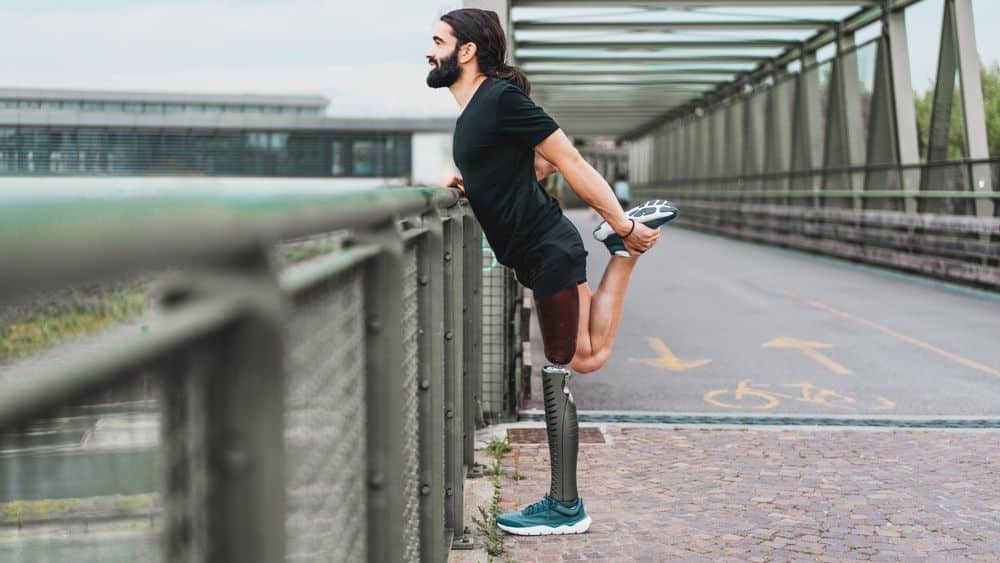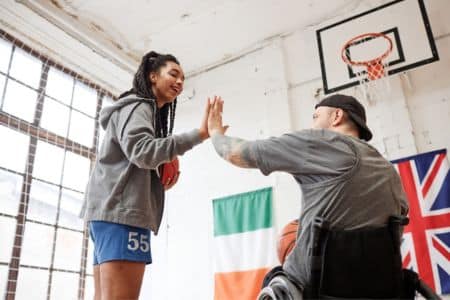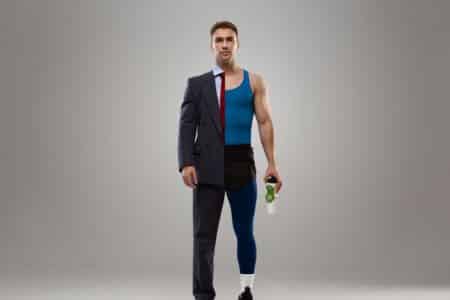
Adaptive sports have been gaining more recognition and importance in athletics, providing individuals with disabilities the opportunity to experience various sports and physical activities. This promotes inclusivity and helps improve their overall physical and mental well-being.
As a result, there is a growing demand for professionals in adaptive sports dedicated to creating equal opportunities for individuals with disabilities. From coaching to therapy, these adaptive careers offer rewarding experiences that go beyond just working in the sports industry.
In this guide, we will provide an overview of the various career paths available in adaptive sports and how you can pursue them.
What Are Adaptive Sports?
Adaptive sports are athletic activities modified or adapted to cater to people with physical, sensory, or cognitive disabilities. These modifications may include changes to equipment, rules, and/or playing styles to accommodate a wide range of abilities.
These sports provide opportunities for individuals with disabilities to participate in various athletic activities at both recreational and competitive levels. Popular adaptive sports include wheelchair basketball, para-athletics (track and field events), adaptive skiing/snowboarding, and sit volleyball.
Organizations like the Paralympic Games and Move United have globally promoted and supported adaptive sports initiatives. The Paralympic Games is explicitly an international multi-sport event for athletes with disabilities, held parallel to the Olympic Games. Move United (formerly known as Disabled Sports USA) is a non-profit organization that aims to provide adaptive sports opportunities and resources for individuals with disabilities in the United States.
Types of Adaptive Sports Jobs
There are numerous career opportunities in adaptive sports, and they can be broadly categorized into coaching, therapy, administration, and program development. Each of these fields requires unique skills and qualifications, but all aim to promote inclusivity and accessibility in athletic activities.
Some job titles you may come across in this field include:
- Adaptive Sports Coach: As an adaptive sports coach, your role will involve teaching individuals with disabilities how to participate in various adapted sports activities. This includes developing training programs that cater to their individual needs and abilities.
- Occupational Therapist (OT): OTs specialize in helping individuals with disabilities improve their daily living skills through therapeutic exercises and activities. In adaptive sports, they may work with athletes to enhance their motor skills and overall physical abilities.
- Recreational Therapist: Similar to OTs, recreational therapists utilize various activities and exercises to help individuals with disabilities improve their physical, emotional, and cognitive well-being. They may also focus on developing adapted sports programs for specific populations.
- Sports Program Coordinator: This role involves overseeing the organization and management of adaptive sports programs at various levels, from local community events to national/international competitions. This can include recruiting coaches and volunteers, managing budgets, and promoting events.
The work environments for these roles will vary depending on the specific job and organization. Some may involve working in a traditional office setting, while others may require being on the field or at sports facilities.
Skills and Qualifications for Adaptive Sports Careers

To excel in the field of adaptive sports, specific skills and qualifications are necessary. Some key skills include:
- Knowledge of disability sports: A solid understanding of various disabilities and how they may affect an individual’s ability to participate in sports is crucial for careers in adaptive sports. This knowledge will help you develop effective programs and strategies that cater to their needs.
- Patience: Working with individuals with disabilities demands patience, as learning new skills or adapting to certain sports activities may take longer. It is essential to be patient and provide support throughout the learning process.
- Communication: Effective communication is vital in all facets of adaptive sports jobs, from coaching and therapy to administration and program development. Clear communication with athletes, colleagues, and other professionals is crucial for success.
- Adaptability: As the field of adaptive sports continues to evolve and cater to various disabilities, it is essential to be adaptable and open to new ideas and approaches. This will allow you to improve and continuously provide the best possible experience for athletes.
In addition to these skills, knowledge of assistive technology, adaptive equipment, and inclusive coaching strategies is also necessary. This may include specialized physical therapy, kinesiology, or adaptive recreation training. Certifications from organizations like Move United or the National Center on Health, Physical Activity, and Disability (NCHPAD) can also be beneficial for career development in adaptive sports.
Educational Pathways to a Career in Adaptive Sports
Varied educational paths can lead to a career in adaptive sports. These include:
- Sports management degree: A degree in sports management with a focus on adaptive sports can prepare individuals for program development and administration roles.
- Occupational therapy or physical therapy degree: These degrees provide the necessary skills and knowledge to work as therapists in adaptive sports.
- Adaptive physical education (APE) degree: This specialized degree focuses on teaching adapted physical education to individuals with disabilities, making it perfect for those interested in becoming an adaptive sports coach.
In addition to these formal programs, specialized certifications can enhance your qualifications for careers in adaptive sports. Examples include the Certified Adaptive Recreation and Sports Specialist (CARSS) or Certified Therapeutic Recreation Specialist (CTRS). These certifications demonstrate your expertise in working with individuals with disabilities in sports and recreational activities.
Practical training, workshops, and continuing education are essential for staying current in adaptive sports. Organizations like Move United offer various training opportunities and resources for professionals to expand their knowledge and skills. Attending conferences and industry sports networking with other specialists can also be valuable for career development in this field.
How to Find Adaptive Sports Jobs
If you’re interested in pursuing a career in adaptive sports, here are some steps you can take to find relevant job opportunities:
- Utilize job boards: Many job boards like Indeed and LinkedIn have specific filters for adaptive sports jobs. You can also search for keywords like “adaptive sports” or “disability sports” on these platforms.
- Network with disability sports organizations: Reach out to local and national organizations specializing in disability sports, such as Special Olympics or Paralympic Sports Clubs. They may have open positions or be able to connect you with other professionals in the field.
- Leverage internships: Consider applying for internships with adaptive sports programs to gain practical experience and make connections in the industry.
When applying for jobs, highlight relevant experience or certifications in your sports resume and cover letter. Emphasize your knowledge of disability sports, inclusive coaching strategies, and any previous work or volunteer experience with individuals with disabilities. This will display your passion and commitment to the field of adaptive sports.
Networking in the Adaptive Sports Industry
Networking is crucial in any industry, and the adaptive sports field is no exception. Building professional connections can open up opportunities for career advancement and development. Here are some ways to network within the adaptive sports industry:
- Attend adaptive sports conferences: Conferences offer an excellent opportunity to learn about new developments in the field, network with other professionals, and showcase your expertise.
- Join professional associations: Organizations like Move United and NCHPAD offer memberships for professionals in the adaptive sports industry. These associations provide resources, networking opportunities, and training programs.
- Engage with local disability advocacy groups: Connecting with local organizations that advocate for individuals with disabilities can lead to valuable partnerships and job opportunities.
Additionally, staying updated on industry news and trends through online forums and social media is essential. Building a strong network can also help you find mentors who can guide and support you as you navigate your career in adaptive sports.
Gaining Experience in Adaptive Recreation Jobs
Sports internships and volunteer opportunities are incredible ways to gain helpful experience in adaptive sports. These opportunities allow you to work with individuals with disabilities, learn from experienced professionals, and develop your skills in the field. Additionally, entry-level positions such as program coordinators or assistants can provide valuable hands-on experience managing adaptive sports programs.
Here are some tips for finding and making the most out of these opportunities:
- Research local adaptive recreation programs: Look for organizations or programs in your community that offer adaptive sports activities and ask if they have any volunteer or internship openings.
- Connect with non-profit organizations: Many non-profits focus on providing recreational opportunities for individuals with disabilities. Volunteering with these organizations can help you gain experience and make connections in the field.
- Consider working at rehabilitation centers: Rehabilitation centers often have sports therapy programs incorporating adaptive sports. Working as an assistant or therapist at one of these facilities can provide valuable experience.
Remember to be proactive and enthusiastic when seeking out opportunities. Networking, volunteering, and gaining hands-on experience are all essential for a successful career in adaptive sports. With determination and dedication, you can build a rewarding career helping individuals with disabilities thrive through sports and recreation.
Excelling in Your Adaptive Sports Career
As with any career, there are opportunities for development and advancement in adaptive sports. Here are some ways to take your career to the next level:
- Earn advanced certifications: Organizations like the U.S. Paralympics offer certification programs for adaptive sports coaches, officials, and administrators. These certifications can help you stand out as a competent professional in the industry.
- Develop leadership skills: Pursue opportunities to lead projects and teams within your organization or community. This will showcase your ability to take on higher-level roles in the future.
- Stay updated on advancements: Keep learning about new developments in adaptive sports through conferences, workshops, and online resources. This will expand your knowledge and show your dedication to the profession.
Moreover, using your platform in the adaptive sports industry is essential to advocating for inclusivity and accessibility. This can include raising awareness of disability rights, promoting adaptive sports programs, and educating others on the importance of equal opportunities in sports. Being a vocal advocate can favorably impact the broader sports industry.
The Future of Adaptive Sports Careers
The future of adaptive sports is bright, with many exciting developments on the horizon. As technology advances, we can expect to see more innovative equipment and assistive devices that will enhance the accessibility of sports for individuals with disabilities. This will also open up new job opportunities for equipment design and maintenance.
Government funding for disability sports programs is also increasing, providing more support and resources for adaptive sports organizations. This will lead to a growing demand for professionals in various roles, from coaches to program coordinators.
Moreover, inclusive fitness programs are gaining popularity, creating even more avenues for career growth in adaptive sports. These programs aim to make all types of physical activity accessible for individuals with disabilities, creating opportunities for adaptive sports professionals to work in various settings, from gyms to community centers.
Start Your Journey in Adaptive Sports Careers Today

If you’re passionate about making a difference in the lives of individuals with disabilities through sports, there’s no better time to start your journey in adaptive sports careers. Adaptive sports provide people with disabilities the opportunity to engage in physical activities, improve their quality of life, and build confidence. Working in this field allows you to play a direct role in creating inclusive environments and empowering individuals to reach their full potential.
For more resources and job listings in adaptive sports, keep visiting Jobs In Sports. We offer many opportunities for aspiring professionals in this rewarding field. By signing up for a paid membership, you’ll gain access to exclusive job postings to help you succeed. Whether you’re looking for coaching, program management, or advocacy roles, we’re here to help you take the next step.
Start your journey in adaptive sports today and make a lasting, positive impact on the lives of others. Pursue a fulfilling career that combines your passion for sports with the opportunity to make a real difference in your community.





